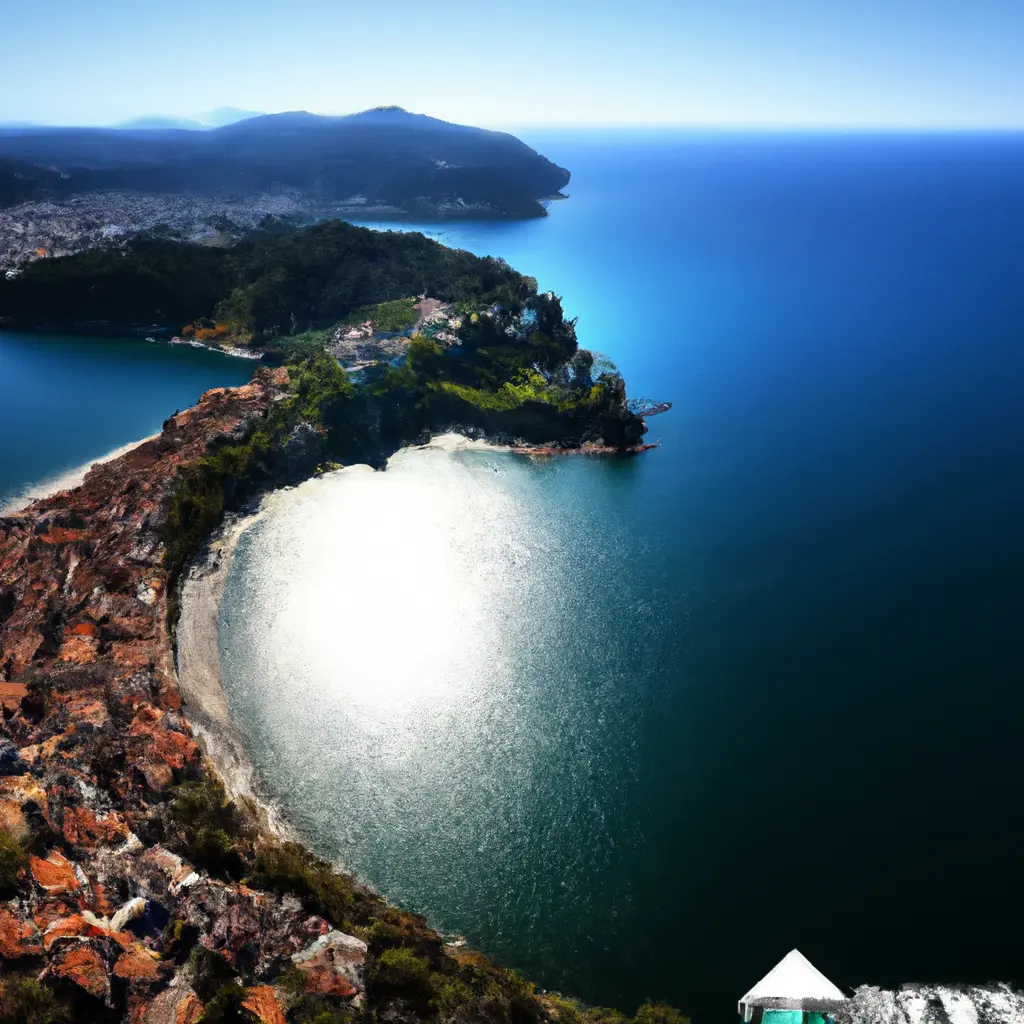Montenegro: now the Germans are coming for the Russians and Ukrainians.

The Oberender family from Coburg, Bavaria, first visited Montenegro in June of last year. Two months later, they bought a house in the coastal village of Uteša near Bar. After a brief return to Germany, they have been living in Montenegro permanently since November. "We considered different countries, Bulgaria, Hungary, even Mexico. When we were children, we vacationed several times in Yugoslavia, in Dubrovnik. We have long liked the mentality of the people here, especially when they say, 'You work in Germany, and we live in Montenegro,'" say Anya and Ralph Oberender to DW. Both are IT specialists, and Ralph is also an electrical engineer. Their daughters, Hannah and Ella, have already started elementary school in Ulcinj and are learning the Montenegrin language, while their younger brother Max will soon follow in their footsteps. They have put their house in Germany up for sale and are waiting for a buyer.
The Oberender family is just one of the German families that moved to Montenegro in the past year. According to the Ministry of Internal Affairs of Montenegro, there are currently over 700 German citizens in a country with a population of about 600,000. The increased interest of Germans in relocating is also confirmed by the fact that last year, German citizens and companies invested the most money in real estate purchases in Montenegro compared to all other foreigners. Foreigners bought real estate worth 370 million euros in the first 10 months of 2022, according to data from the Central Bank of Montenegro. Germans topped the list with 57 million euros, followed by Russians with 50 million. The government's economic citizenship program, which offers Montenegrin citizenship in exchange for investments, has also influenced this trend.
“It’s not surprising, as we’ve heard from many that they bought homes in Montenegro or moved here,” say the Oberenders, but they also note that Montenegro is not a completely “paradise country” – some Germans complain that they overpaid for their property compared to its actual quality. Germans in Montenegro are mainly concentrated in Bar, which is why they are already referred to as “Bar Germans.” The most well-known among them is Michael Bader, who has lived in the village of Uteša for 15 years and is a “first aid” for many compatriots upon their arrival in Montenegro. He also helped the Oberenders. Bader lived in Germany near Koblenz, and after the referendum on Montenegro's independence in 2006, he bought an apartment in Montenegro just for vacation. “At that time, I wasn’t thinking about tourism or any other business. However, soon I accidentally rented out that apartment, and the first tourists came to me. The following year, even more came. That’s when I realized what a developing opportunity this was, so I gradually replaced Germany with Montenegro,” Bader tells DW.
13 May 2025
14 May 2025
14 May 2025




Bader explains that Germans come to Montenegro for various reasons. "Some are no longer satisfied with the political situation in Germany. Others want to live where the climate is better, where there is more sun, and where there are both sea and mountains. German retirees come because it is financially easier for them to live here. Energy prices and other costs have risen significantly in Germany, which particularly affects them. The average pension in Germany is 1400 euros, and it's hard to live on that, while in Montenegro, with 1400 euros, you are a 'king,'" says Bader. In addition to the significantly lower cost of living, Montenegro also attracts Germans due to lower taxes for those who want to do business. These are mainly individuals or couples without children who primarily work online. The second type is those who focus on tourism. "There are Germans who sold everything in Germany and bought property to live and work in Montenegro. Others buy it as an investment for the future and are not always here, using the homes only during vacations. And, of course, those who planned to engage in tourism have bought or are building properties for rental," says Bader.
Among them are the Oberenders, who plan to rent out their new house in Uteše. "We believe this is a good opportunity because we see that the number of German tourists is growing. If we sell our house in Germany, we plan to buy more properties for tourism in Montenegro. Additionally, we aim to attract digital nomads from Germany who can work here online," say the new citizens of Montenegro. Recent tourism studies show that about 3.8 million tourists from Germany are planning or considering visiting Montenegro in the next three years. For many, their first destination will be their compatriots in Bar. Bader says they will encounter a completely different society in Montenegro. "People here are friendly, open, and help each other. This is no longer the case in Germany, where everyone only looks out for themselves," claims Bader, as he and other "Bar Germans" try to contribute to the new community, for example, by donating money to the fire department in Bar last year after its heroic battle with fires.
Comment
Popular Offers

Subscribe to the newsletter from Hatamatata.com!
Subscribe to the newsletter from Hatamatata.com!
I agree to the processing of personal data and confidentiality rules of Hatamatata










